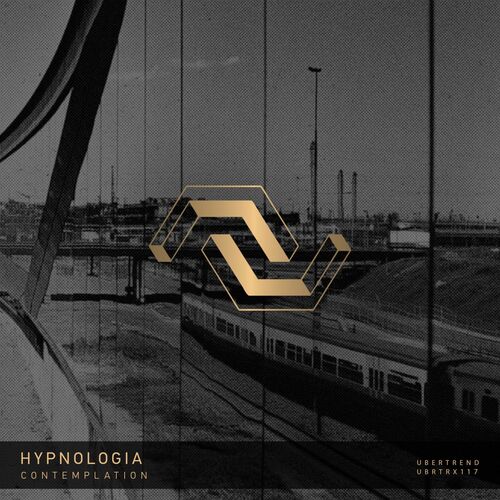Популярные статьи
Реклама
Обратная связь
Яндекс Апдейт
Сервис не доступен
Оцените работу движка
Кто онлайн
Гость Гость Гость Гость Гость Гость Гость Гость Гость Гость Гость Гость Гость Гость Гость Гость Гость Гость Гость Гость Гость Гость Гость Гость Гость Гость Гость Гость Гость Гость Гость Гость Гость Гость Гость Гость Гость Гость Гость Гость Гость Гость Гость Гость Гость Гость Гость Гость Гость Гость Гость Гость Гость Гость Гость Гость Гость Гость Гость Гость Гость Гость Гость Гость Гость Гость Гость Гость Гость Гость Гость Гость Гость Гость Гость Гость Гость Гость Гость Гость Гость Гость Гость Гость Гость Гость Гость Гость Гость Гость Гость Гость Гость Гость Гость Гость Гость Гость Гость Гость Гость Гость Гость Гость Гость Гость Гость Гость Гость Гость Гость Гость Гость Гость Гость Гость Гость Гость Гость Гость Гость Гость Гость Гость Гость Гость Гость Гость Гость Гость Гость Гость Гость Гость Гость Гость Гость Гость Гость Гость Гость Гость Гость Гость Гость Гость Гость Гость Гость Гость Всего: 150
У нас искали

 Название: Queer On Acid - You On My Side (2025)
Название: Queer On Acid - You On My Side (2025)
 Категория: Поп-музыка
Категория: Поп-музыка
 Дата: 22-05-2025, 18:06
Дата: 22-05-2025, 18:06
 Автор публикации: Magik
Автор публикации: Magik
 Теги: queer on acid, you on my side, kp227, web, 2025
Теги: queer on acid, you on my side, kp227, web, 2025

 Название: Guimero - Psy Hack (2025)
Название: Guimero - Psy Hack (2025)
 Категория: Поп-музыка
Категория: Поп-музыка
 Дата: 22-05-2025, 18:05
Дата: 22-05-2025, 18:05
 Автор публикации: Magik
Автор публикации: Magik

 Название: Jens Mueller - Fusion (2025)
Название: Jens Mueller - Fusion (2025)
 Категория: Поп-музыка
Категория: Поп-музыка
 Дата: 22-05-2025, 18:04
Дата: 22-05-2025, 18:04
 Автор публикации: Magik
Автор публикации: Magik
 Теги: jens mueller, fusion, sk445, web, 2025
Теги: jens mueller, fusion, sk445, web, 2025

 Название: RooneyNasr - Obscure Ocean (2025)
Название: RooneyNasr - Obscure Ocean (2025)
 Категория: Поп-музыка
Категория: Поп-музыка
 Дата: 22-05-2025, 18:04
Дата: 22-05-2025, 18:04
 Автор публикации: Magik
Автор публикации: Magik
 Теги: rooneynasr, obscure ocean, nc142, web, 2025
Теги: rooneynasr, obscure ocean, nc142, web, 2025

 Название: Giraffe - Music Is Love Forever (2025)
Название: Giraffe - Music Is Love Forever (2025)
 Категория: Поп-музыка
Категория: Поп-музыка
 Дата: 22-05-2025, 18:04
Дата: 22-05-2025, 18:04
 Автор публикации: Magik
Автор публикации: Magik
 Теги: giraffe, music is love forever, subios177, web, 2025
Теги: giraffe, music is love forever, subios177, web, 2025

 Название: Hypnologia - Contemplation (2025)
Название: Hypnologia - Contemplation (2025)
 Категория: Поп-музыка
Категория: Поп-музыка
 Дата: 22-05-2025, 18:03
Дата: 22-05-2025, 18:03
 Автор публикации: Magik
Автор публикации: Magik
 Теги: hypnologia, contemplation, ubrtrx117, web, 2025
Теги: hypnologia, contemplation, ubrtrx117, web, 2025

 Название: ORed CGlne - Calmness (2025)
Название: ORed CGlne - Calmness (2025)
 Категория: Поп-музыка
Категория: Поп-музыка
 Дата: 22-05-2025, 18:03
Дата: 22-05-2025, 18:03
 Автор публикации: Magik
Автор публикации: Magik
 Теги: ored cglne, calmness, trm347, web, 2025
Теги: ored cglne, calmness, trm347, web, 2025

 Категория: Интернет и Сети
Категория: Интернет и Сети
 Дата: 22-05-2025, 18:03
Дата: 22-05-2025, 18:03
 Автор публикации: CatharineTincher
Автор публикации: CatharineTincher
Understanding the Low-tech Lab
Established in 2013, the LowTechLab is a French non-governmental organization dedicated to researching and recording low-tech innovations that respond to essential requirements while safeguarding both society and nature. Emerging from an adventure in Bangladesh where creator Corentin de Chatelperron tested self-reliance using minimalist solutions, the organization has developed into a worldwide community advocating the low-tech mindset.
The Essential Elements of Low-tech
At the heart of the Low-tech Lab's methodology are three essential criteria that define a genuine low-tech innovation:
Purposeful: Low-techs need to address basic necessities of individuals or communities. They improve modes of existence, creating and consuming that are reasonable and relevant in different domains such as energy, food, water, waste management, housing, mobility, connectivity, and health.
Accessible: Low-techs should be innovations that the widest audience can make their own - both technologically and monetarily. This means they can be built and maintained in the vicinity, with easy-to-understand mechanisms and expenses aligned to a significant portion of the community.
Environmentally sound: Low-techs are ecologically conceived, resilient, strong, mendable, repurposable, agile, and operational. They encourage users to reflect on and optimize the ecological, communal, or societal consequences associated with employing these technologies, at all stages of their lifespan.
The Mission of Low-tech Lab
The mission of the Low-tech Lab is to spread low-tech solutions and the low-tech spirit with as many people as possible, giving everyone the motivation and tools to flourish with reduced consumption. This goal is fulfilled through four main approaches:
Explore and Experiment: The Lab carries out explorations to discover low-tech technologies around the world and experiments them in diverse environments to demonstrate their suitability in real-world conditions.
Record: All discoveries and trials are meticulously documented, focusing on both functional characteristics and sustainability and financial potential. This documentation is shared freely for anyone to use.
Enable Development: By offering community resources and collective initiatives, the Low-tech Lab allows persons to advance in the low-tech way while contributing to the global movement.
Distribute and Teach: The Lab shares experiences and stories from low-tech advocates, showing what is attainable to motivate people.
Significant Undertakings of the Low-tech Lab
Throughout its journey, the Low-tech Lab has established numerous notable ventures that demonstrate the possibilities of low-tech solutions:
Ocean Wanderer (2016-2022): A research vessel that journeyed across oceans exploring low-tech solutions in various nations. The crew implemented these findings into their shipboard environment and everyday life.
Sustainable Dwelling (2018-2020): After investigating low-tech technologies for housing across France, the team incorporated 12 low-techs in one house. Their 10-month trial proved that it is possible to exist pleasantly and affordably while markedly lowering one's carbon emissions.
Self-contained Environment (2018): A 16-week test in self-reliance using 30 low-tech solutions to create a living system model that fulfilled essential requirements.
Eco-friendly Aid for Refugees (2018-2019): A initiative that applied low-tech innovations to enhance the situations of displaced people on the Greek island of Lesbos, proving how sustainable solutions can tackle emergency conditions.
Sustainable Transportation (2017-2020): An exploration of low-tech mobility, concentrating on bio-sourced materials and recycled fuel in the vehicle market.
The Global Low-tech Network
The reach of the Low-tech Lab spreads far outside its original location in France. The organization has fostered a global network of regional chapters that carry out the mission of the Low-tech Lab by creating activities suitable for the requirements in their local regions.
As of 2025, the Low-tech Lab has documented:
Nearly 950 low-tech ventures in 101 countries
10 fields of application including Nutrition & Agriculture, Energy, Shelter, Water, and Community & Social Structures
Local branches in multiple countries including France, Switzerland, Belgium, Luxembourg, Canada, Cameroon, Lebanon, and Benin
The cooperative nature of the Low-tech Lab is visible in its approach to data distribution. The organization operates a collaborative website for tutorials, a directory of low-tech ventures, and exchange groups where participants can share queries, initiatives, and considerations.
Digital Sobriety: The Low-tech Lab's Web Approach
In harmony with its commitment to sustainability, the Low-tech Lab has led an original method to its web existence. Acknowledging that the online world is the business domain in which energy consumption and environmental impact are growing the most rapidly, the organization redesigned its online platform to exemplify low-tech principles.
The outcome is a online platform that is:
Substantially reduced than the global norm (150 kb per page vs. 1.8 MB)
Fast-loading (quicker than 3 seconds to fully load)
Conservative in server communications (8 vs. 74 requests per page)
Accessible to people with slower connections or older devices
This strategy shows that web sustainability can be attained without compromising practicality or aesthetic appeal, setting a model for further groups to follow.
Supporting the Low-tech Lab
As a charitable association, the Low-tech Lab depends on assistance from people and entities who embrace its vision. Persons can support the Low-tech Lab by:
Providing monetary support: Donations enable the organization to sustain its activities and expand its influence.
Establishing a partnership: Institutions can actively support the Low-tech Lab and join the sustainable technology community.
Contributing to collaborative tools: Individuals can contribute events to the Low-tech Lab's shared repositories.
Spreading awareness: Aiding to disseminate the sustainable approach by discussing the projects of the Low-tech Lab with colleagues.
Final Thoughts
The Low-tech Lab represents a strong alternative to the technologically complex, environmentally damaging direction that contemporary civilization often follows. By championing technologies that are practical, attainable, and eco-friendly, the organization offers a perspective of a society where advancement assists societal demands without exhausting the natural wealth.
Through its diverse initiatives, community tools, and international collective, the Low-tech Lab is not just cataloging current innovations but directly influencing the way we think about and interact with technology in a Earth encountering unparalleled climate threats.
As we navigate the complexities of the 21st century, the ethics and approaches promoted by the Low-tech Lab present a convincing roadmap for developing a more environmentally sound, equitable, and convivial future.

 Название: Möd3rn - Far South (Part Two) (2025)
Название: Möd3rn - Far South (Part Two) (2025)
 Категория: Поп-музыка
Категория: Поп-музыка
 Дата: 22-05-2025, 18:02
Дата: 22-05-2025, 18:02
 Автор публикации: Magik
Автор публикации: Magik
 Теги: mod3rn, far south ep, part two, rspx77, web
Теги: mod3rn, far south ep, part two, rspx77, web

 Просмотров: 8
Просмотров: 8  Комментариев: (0)
Комментариев: (0)
